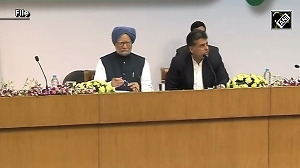Moratorium was only a temporary reprieve to borrowers affected by the pandemic, adding that a longer moratorium period exceeding six months can impact credit behaviour of borrowers and increase the risks of delinquencies post resumption of scheduled payments.

The Reserve Bank is unlikely to extend the moratorium on repayment of bank loans beyond August 31 as an extension could impact the credit behaviour of borrowers without resolving the issues being faced by them following the outbreak of the COVID-19, sources said.
The RBI had announced a moratorium on repayment of debt for six months beginning March 1, 2020 to help businesses and individuals tide over the financial problems on account of disruption in normal business activities.
The six-month moratorium period comes to an end on August 31.
It was only a temporary reprieve to borrowers affected by the pandemic, the sources said, adding that a longer moratorium period exceeding six months can impact credit behaviour of borrowers and increase the risks of delinquencies post resumption of scheduled payments.
It is to be noted that several bankers, including HDFC Ltd chairman Deepak Parekh and Kotak Mahindra Bank managing director Uday Kotak, had asked RBI Governor Shaktikanta Das not to extend the moratorium as many are taking undue advantage of the facility.
As the various containment measures put in place by the government begin to ease and the economic activity gathers pace, continuation of temporary measures would not be sufficient in addressing cashflow problems of the borrowers.
A more durable solution was, therefore, needed to rebalance the debt burden of viable borrowers, both businesses as well as individuals, relative to their cashflow generation abilities under the post-lockdown scenario, the sources said.
It was with the above objective that the Reserve Bank of India (RBI) recently announced a special resolution window for COVID-19-related stress within the existing Prudential Framework for Resolution of Stressed Assets.
It strikes a balance between protecting the interest of depositors and maintaining financial stability on one hand and preserving the economic value of viable businesses by providing durable relief to businesses as well as individuals affected by the COVID-19 pandemic on the other, the sources said.
The resolution plans to be implemented under the framework may include conversion of any interest accrued, or to be accrued, into another credit facility, or granting of moratorium and/ or rescheduling of repayments, based on an assessment of income streams of the borrower, up to two years, the sources added.
While the resolution under this framework can be invoked till December 31, 2020, the lending institutions have been encouraged to strive for early invocation in eligible cases, particularly for personal loans.
Thus, the concerns of borrowers are sought to be addressed by the resolution framework wherein moratorium is also a relief option which the borrower can avail.
According to the sources, reliefs for each borrower can be tailored by banks to meet the specific problem being faced by the borrower depending on the need rather than have a broad-brush approach in dealing with the issue.
Recently, the RBI Governor said that while the moratorium on loans was a temporary solution in the context of the lockdown, the resolution framework is expected to give durable relief to borrowers facing COVID-19-related stress.
Photograph: Francis Mascarenhas/Reuters











 © 2024 Rediff.com -
© 2024 Rediff.com -